Employee Gift Matching
DOUBLE, OR TRIPLE YOUR IMPACT!
Did you know that many companies match donations made by their employees to our organization? Matching gifts provide you with an easy way to potentially double, if not triple, your original donation! In fact, your company, a spouse’s company, the company whose board you serve on or even a company that you retired from may match your gift to the Piedmont Park Conservancy.
If you are not sure if you qualify for a matching gift, please click on the below link. Our Double the Donation tool will provide you with information regarding minimum and maximum match, as well as the steps on how to get started.
Gifts of stocks or securities benefit you and the Conservancy. This type of gift is tax-deductible and you may avoid paying capital gains tax on the appreciated stock or security.
Often a gift of appreciated stock offers tax benefits to the donor. Not only can the donor take a charitable deduction for the full fair market value of the stock, capital gains tax on the appreciation can be avoided.
To make a gift of stock or securities, please contact the development office for delivery instructions to make a transfer from your brokerage account to the Conservancy.
Contact us at [email protected] or 404.272.4603.
Planned Giving
As part of your Estate Planning, consider making a planned gift to the Conservancy.
The Conservancy encourages and appreciates future gifts made through one’s estate. Bequests are the most common way for donors to make their ultimate gift to the organization. Here are some common options:
Gifts of Retirement Assets and Beneficiary Designations:
A beneficiary designation is the simplest way to make a legacy gift. When you complete your beneficiary designation form, just name Piedmont Park Conservancy as a full or partial beneficiary. In addition, these gifts bypass probate and go directly to all beneficiaries.
Here are some common designation options:
- Retirement plans [e.g., traditional IRA, Keogh, 401(k)]: Including the Conservancy as a beneficiary enables you to avoid substantial income taxes that would have been due if a retirement plan were left to non-spousal heirs.
- Insurance policies: There are a number of ways you can name the Conservancy as a beneficiary of an insurance policy, whether through your employer or a separate policy that you hold.
- Savings accounts: Designating the Conservancy as a beneficiary of a savings account is simple and allows full use of savings during your life.
Bequests and Wills:
Please consider adding the Conservancy as a beneficiary in your will. You may be able to add a simple codicil for a charitable bequest to an existing will.
Here are some common bequest options you can use:
- Specific bequest: Determine a specific dollar amount or asset that you wish to leave to the Conservancy.
- Residual bequest: After you have provided for your loved ones, name the Conservancy percentage or all of your residuary estate.
- Contingent bequest: The Conservancy receives a bequest only in the event of the death of other beneficiaries.
The information provided here is for illustrative purposes only and should not be considered investment, legal, accounting, tax or other professional advice. Donors are advised to consult with their own legal, tax, and estate planning professionals when considering gifts other than cash.
Contact us at [email protected] or 404.272.4603.



